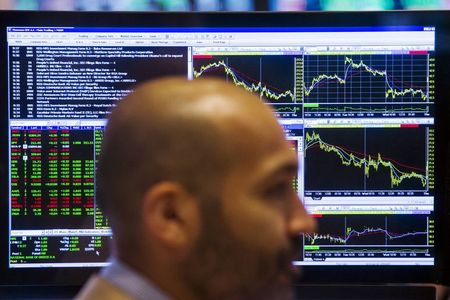Follow us on LinkedIn
A random variable is a quantity that can take on any one of a set of possible values, each with a certain probability. In other words, it is a value that is randomly generated. This can be anything from the outcome of a coin flip to the results of an election. In this blog post, we will discuss what a random variable is and how it is used in quantitative finance
What is a random variable?
A random variable is a value that can represent any one of the possible outcomes of a probabilistic measurement. This measurement could be something such as flipping a coin, rolling dice or sending an email. For example, let’s say you are interested in measuring the outcome of an election between two candidates. You could gather historical data as well as create a statistical model that predicts the outcome of this election. Once you have this data, you can assign probabilities to each possible outcome such as “candidate A will win” or “candidate B will win”. This probability is known as a random variable.
There are many financial variables that can be represented as random variables. For example, let’s say you want to measure the return of an investment over a period of time, such as 1 year. The possible outcomes are
A positive return – you buy $100 worth of stock and it increases in value to $120 A negative return – you buy $100 worth of stock and it decreases in value to $90 A zero return – you buy $100 worth of stock, hold it for a year, and it is still worth $100. Using this information, we can create a random variable that determines the return generated by our investment. This random variable represents the probability of either a positive or negative return.
Another example of a random variable is the stock price. Again, we would have the possible outcomes listed above, with the probability that the price will increase or decrease in value. The same concept applies to many financial variables – they are each represented as a random variable. This makes it easier for us to build statistical models because we don’t have to worry about predicting every possible outcome. Instead, we can assign probabilities to the possible outcomes and create a single random variable for each financial metric that is being measured.
How Is It Used in Quantitative Finance?
Random variables are used in quantitative finance because there are many different financial metrics that can be represented with probability distributions. This is what makes quantitative finance so fascinating – there are many different ways to measure financial metrics and each one can be represented as a random variable. Here are some examples of how random variables are used in quantitative finance:
The expected value of an investment or trade is the random variable that represents the mean return generated by it. Any tool that uses probability distributions to represent the expected return of an investment or trade is relying on random variables.
The variance of a trade or investment is another example of a random variable – it determines how much risk there is associated with that investment, which can be expressed as either positive or negative. The use of this type of statistical measurement helps us determine the risk and rewards of any given trade.
There are many other useful applications of random variables in quantitative finance, such as calculating the probability that an investment will generate a profit or the probability that it will generate a certain amount of return. This can help us determine how much to invest in a particular instrument or asset class, which is very important for portfolio managers.
FAQs
What are some examples of random variables in finance?
Some common examples of random variables in finance include the expected return for a particular financial instrument or investment, the probability that an investment will generate a negative return, and the probability that an asset price will increase or decrease over a certain period of time.
What is the difference between a random variable and a probability distribution?
A random variable is a number that represents an outcome that has a probability associated with it. A probability distribution is the list of possible outcomes and the corresponding probabilities.
Why do we need random variables?
Random variables are needed in quantitative finance because they allow us to simplify the analysis of complex financial metrics. By using random variables, we can create probability distributions that are easier to understand and work with, which allows us to build better statistical models.
How do we measure the probability of a random variable?
In general, the probability of a random variable can be measured by calculating the area under its histogram. To use this method, we first need to use statistical software like MS Excel, R, or another statistical package to create the histogram and then calculate the area under the curve.
Can random variables be negative?
Yes, random variables can be either positive or negative. This is determined by the value of the random variable and the distribution it has been assigned. For example, if a random variable has been assigned a normal distribution with a mean of -1 and a standard deviation of 2, the probabilities associated with that variable will be skewed to the left and have negative values.
Do you need to know all about random variables for a job in quantitative finance?
This depends on the job you are applying for and also how much of a quantitative background you have. Some positions in quantitative finance require extensive knowledge of random variables, while others may not require any at all. The best way to find out is to talk with your employer or a recruiter about the specific skills and knowledge that are required for your position.
What is the difference between random variables and stochastic processes?
A stochastic process is a collection of random variables that evolve over time, while a random variable can represent many different values at once. To distinguish between the two, we can think of a stochastic process as being like a TV show that follows one or more characters through many different situations over time, while a random variable is like a single episode of the TV show that can be watched separately from all other episodes.
The bottom line
Overall, a random variable is an important concept in quantitative finance because it helps us measure the risk and return of any given investment or trade. It allows us to build statistical models that can be used to help us predict performance, which is something that many investors are interested in. Whether you are investing on your own or working as a quantitative analyst at an investment bank, random variables are useful for both.
Further questions
What's your question? Ask it in the discussion forum
Have an answer to the questions below? Post it here or in the forum




